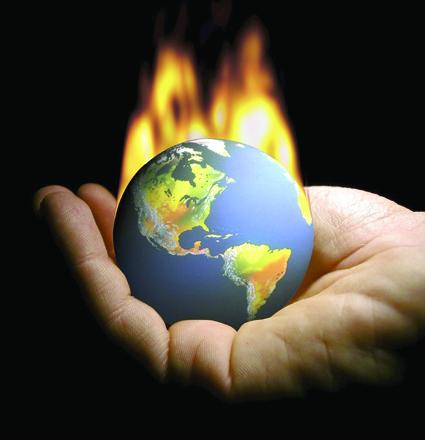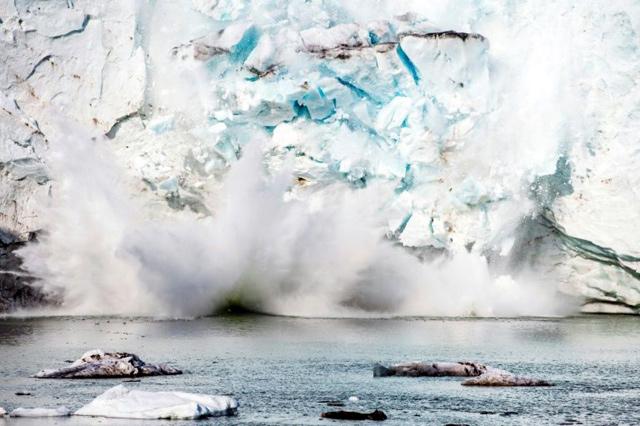You are here
Earth could become hotter than thought
By AFP - Apr 21,2016 - Last updated at Apr 21,2016

Photo courtesy of ecologikol.com
WASHINGTON — Global warming could make the planet far hotter than currently projected because today’s scientific models do not correctly account for the influence of clouds, researchers recently said.
The study in the journal Science was led by researchers at Yale University and Lawrence Livermore National Laboratory.
When climate scientists look ahead to how much the planet’s surface temperature may warm up in response to a doubling of carbon dioxide — a byproduct of fossil fuel burning — they typically predict a rise of between 2.1°C and 4.7°C.
But these models overestimate the ability of clouds to reflect back sunlight, and counteract warming in Earth’s atmosphere, researchers said.
“We found that the climate sensitivity increased from 4°C in the default model to 5°C to 5.3°C in versions that were modified to bring liquid and ice amounts into closer agreement with observations,” said lead author Ivy Tan, a researcher at Yale University.
The problem is most models assume there is more ice in clouds than there actually is.
Icier clouds would gain more liquid in a warming environment, and more liquid in clouds would mean less global warming.
“Most climate models are a little too eager to glaciate below freezing, so they are likely exaggerating the increase in cloud reflectivity as the atmosphere warms,” said co-author Mark Zelinka.
“This means they may be systematically underestimating how much warming will occur in response to carbon dioxide.”
Researchers said their findings add to previous studies that have suggested clouds may make warming worse, rather than lessen it.
“The evidence is piling up against an overall stabilising cloud feedback,” said Zelinka.
“Clouds do not seem to want to do us any favours when it comes to limiting global warming.”
The study was funded by NASA and the Department of Energy’s Office of Science.
Related Articles
PARIS — Even if humanity stopped emitting greenhouse gases tomorrow, Earth will warm for centuries to come and oceans will rise by metres, a
To counteract global warming, humans may someday consider spraying sulfur dioxide into the atmosphere to form clouds — and artificially cool
2015 was Earth’s hottest year on record, and it appears the planet is still getting hotter.Barely three weeks into the new year, clima

















